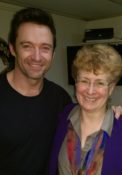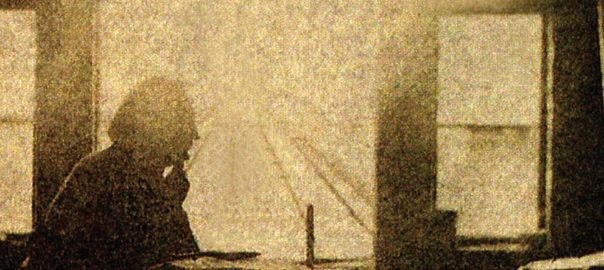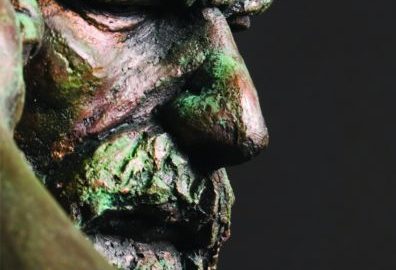Published reviews :
“Marva Barnett pulls off a neat trick: in grouping Hugo’s writing across genres by themes with universal resonance and timeless appeal, it proves that what ought to matter to the modern reader is Victor Hugo. . . . ” Read more » (Isabelle Roche, Bennington College, in The French Review, 2011)
“Barnett reveals herself to be exactly the kind of reader that Hugo wanted to attract to his works. The result is both meticulously organized and compellingly informative, arranging extracts from well over thirty of Hugo’s writings (as well as samples of his graphic work) according to key aspects of the poet’s private and public life . . .” Read more » (Bradley Stephens, University of Bristol, in French Studies: A Quarterly Review, 2010)
“Throughout, the book is animated with Barnett’s own love and appreciation of Hugo’s work and what emerges is not just a showcase of the writer’s literary creations but an insight into ‘one great, intriguing mind’.” Read more » (Andrea Beaghton, in Echo Hugo, 2010)
Ce volume de textes a le double mérite de donner à lire et à penser. Sans aucun doute, l’anthologie de textes ici réunis constitue une belle introduction à la richesse et à la diversité de l’oeuvre hugolienne . . . Read more » (Stéphanie Boulard, in Georgia Institute of Technology, H-France Review, 2012)
Other reviews:
“With Victor Hugo On Things That Matter, Marva Barnett gives us a much-needed tool to experience, understand, and appreciate Hugo’s multifaceted literary and artistic production. Barnett’s book is truly impressive in its clarity, comprehensiveness, and insight . . .” Read more » (Cristina Della Coletta, University of California, San Diego; Author of World’s Fairs Italian Style: The Great Expositions in Turin and their Narratives 1860-1911)
“Marva Barnett’s book is much more than an anthology. The writer surrounds her chosen texts with a complete critical apparatus including essays on Hugo as man and author and an introduction to each text . . .” Read more » (Danièle Gasiglia-Laster, Secretary General of the Society of the Friends of Victor Hugo)
“When I see the quality of the presentations (of all the presentations: preface, introduction, short intros, etc.), I say to myself that there should really be another edition with all Hugo’s texts translated into English, so that a wider public could benefit from them . . .” Read more » (Jean-Marc Hovasse, French National Center of Scientific Research, Paris ; author of Victor Hugo. Avant l’exil, 1802-1851 and Victor Hugo. Pendant l’exil I, 1851-1864)
Alain Lecompte, Québec: Marva A. Barnett helps curious readers who are in love with the French language discover a universal, timeless genius who, while a leader in his time, remains nonetheless contemporary with our world, a world which still needs his unique, essential light . . . Read more »
“Marva Barnett achieves the seemingly impossible task of demonstrating Victor Hugo’s exceptional influence and reputation, as well as the power of this profoundly committed writer so engaged in the service of mankind and in the battles of his time . . .” Read more » (Gérard Pouchain, Chevalier de la Légion d’Honneur and co-author of Juliette Drouet, ou la “dépaysée” (with Robert Sabourin)
From Cristina Della Coletta, U. of Virginia:
With Victor Hugo On Things That Matter, Marva Barnett gives us a much-needed tool to experience, understand, and appreciate Hugo’s multifaceted literary and artistic production. Barnett’s book is truly impressive in its clarity, comprehensiveness, and insight. Her gift for synthesis makes Barnett the ideal interpreter of such a prolific writer as Hugo, and her intellectual curiosity for every facet of Hugo’s creativity and genius allows Barnett’s synoptic views to never fall into simplification or loss of meaningful detail.
While offering a sense of Hugo’s encyclopedic production and wide-ranging creativity, Barnett’s organization along topic lines provides her book with a solid sense of structure and makes it very reader-friendly. Victor Hugo on Things That Matter is a fundamental book for Hugo scholars and instructors who teach Hugo in their courses. Hugo was such a massive presence in 19th century culture that references to his work abound in disciplines as varied as literary and cultural studies, art history, politics, and history. Barnett’s volume is a valuable tool for those of us who work on authors who have been influenced by Hugo. Since the book’s publication, I’ve consulted it several times in reference to artists as diverse as Italian film maker Federico Fellini (who is indebted to Hugo’s ideas on the grotesque), Argentine writer Jorge Luis Borges (on dreams and the fantastic), and French director Alain Corneau (on the exotic).
—Cristina Della Coletta, University of Virginia; Author of World’s Fairs Italian Style: The Great Expositions in Turin and their Narratives 1860-1911 (U of Toronto Press, 2007)
From Danièle Gasiglia-Laster, Paris:
Marva Barnett’s book is much more than an anthology. The writer surrounds her chosen texts with a complete critical apparatus including essays on Hugo as man and author and an introduction to each text. The selections (in French) are organized according to a clever and helpful thematic structure. Each excerpt is placed in its context.
Marva Barnett goes beyond the best-known excerpts from Hugo’s works and the passages that are most often reproduced. She brings to light several collections or volumes that have been wrongly neglected, The Four WInds of the Mind or The Pope, for example, and shows as well another facet of Hugo’s genius, his drawings. Given that the works of Hugo the poet, playwright, and novelist, not to mention the political writer, are far from having been fully translated into English, we congratulate her on this undertaking.
This book is a very good introduction to the works of Victor Hugo and will surely make students, teachers, and English-speaking readers in general want to go deeper into the gigantic universe of the man Baudelaire called “a genius without borders.” The Société des amis de Victor Hugo salutes this undertaking, which is a good match for the Société’s own purpose: to make available the thought and work of Victor Hugo.
—Danièle Gasiglia-Laster, Secretary General of the Society of the Friends of Victor Hugo
Original French:
Le livre de Marva Barnett est beaucoup plus qu’une anthologie. L’auteur entoure les textes sélectionnés par elle de tout un appareil critique : présentation de l’homme et de l’écrivain, notice sur chaque œuvre. Les extraits proposés (dans l’original français) sont ordonnés selon une thématique astucieuse et éclairante. Chaque extrait est situé dans son contexte.
Marva Barnett ne se contente pas de donner les extraits les plus connus des œuvres ou les passages les plus habituellement cités ; elle fait découvrir quelques recueils ou livres injustement méconnus comme Les Quatre Vents de l’Esprit ou Le Pape et aussi cette autre face du génie de Victor Hugo que sont les dessins. Les œuvres du poète comme celles du dramaturge ou du romancier ou encore ses textes politiques étant loin d’avoir été traduits en anglais dans leur totalité, on la félicite d’une telle initiative.
Ce livre est une très bonne introduction à l’œuvre de Victor Hugo et ne peut que donner envie aux étudiants et enseignants comme au grand public anglophones de pénétrer plus profondément dans l’univers gigantesque de celui que Baudelaire désignait comme un « génie sans frontières ». La Société des Amis de Victor Hugo salue cette initiative qui correspond bien à sa propre orientation : diffuser la pensée et l’œuvre de Victor Hugo.
—Danièle Gasiglia-Laster, Secrétaire générale de la Société des Amis de Victor Hugo
From Jean-Marc Hovasse, Paris:
It’s superb! Very impressive! I think it’s magnificent, with no equal in any other language, and I don’t tire of leafing through it. I hadn’t realized to what extent the book overall would be so comprehensive, complete, and beautiful.
The idea of commenting on the drawings in the same way as the texts is inspired, nowhere else done that way. When I see the quality of the presentations (of all the presentations: preface, introduction, short intros, etc.), I say to myself that there should really be another edition with all Hugo’s texts translated into English, so that a wider public could benefit from them: it’s really a shame to “limit” this book to Francophones alone. Is such an edition planned?
The layout is truly splendid (from the cover to the page layout); . . . . I’m sure that VH would have liked it, despite his aversion to anthologies.
—Jean-Marc Hovasse, French National Center of Scientific Research, Paris ; author of Victor Hugo. Avant l’exil, 1802-1851 (Paris: Éd. Fayard, 2001) and Victor Hugo. Pendant l’exil I, 1851-1864 (Paris: Éd. Fayard, 2008).
Original French:
Il est superbe ! Très impressionnant ! Je le trouve magnifique, sans équivalent dans aucune autre langue, et je ne me lasse pas de le feuilleter. Je ne m’étais pas rendu compte à quel point l’ensemble serait ainsi cohérent, complet, et beau.
L’idée de commenter les dessins au même titre que les textes est géniale, jamais faite ailleurs, par exemple. Quand je vois la qualité des présentations (de toutes les présentations : préface, introduction, introductions partielles, etc.), je me dis qu’il faudrait vraiment faire une autre édition avec tous les textes de VH traduits en anglais, pour que le public le plus large puisse en bénéficier : c’est trop dommage de le “limiter” aux seuls francophones. Est-ce que c’est prévu ?
La maquette est vraiment splendide (de la couverture à la mise en page) ;. . . . Je suis sûr que VH aurait aimé, malgré son aversion des anthologies.
—Jean-Marc Hovasse, Centre National de la Recherche Scientifique, Paris ; auteur de Victor Hugo. Avant l’exil, 1802-1851 (Paris: Éd. Fayard, 2001) and Victor Hugo. Pendant l’exil I, 1851-1864 (Paris: Éd. Fayard, 2008).
From Alain Lecompte, Québec:
Through the great Hugo’s poetry, novel excerpts, essays, letters, political speeches, and even drawings, Marva A. Barnett takes the reader into a tremendous anthology where all the cherished themes of this important author and humanist can be found.
It’s clear that this ambitious book (one doesn’t tackle Hugo without some ambition) comes from both an immense passion for, and profound knowledge of, Victor Hugo and his work.
Beyond the judicious choice of texts, one of the best qualities of Victor Hugo on Things That Matter, I may add, are the introductions to the excerpts of Hugo’s work. With immeasurable finesse and absolutely no stylistic heaviness, Marva Barnett communicates her knowledge and love of Hugo, enlightening us sometimes about an historical period, sometimes about the author’s biography and thought.
Marva A. Barnett helps curious readers who are in love with the French language discover a universal, timeless genius who, while a leader in his time, remains nonetheless contemporary with our world, a world which still needs his unique, essential light.
—Alain Lecompte, composer and singer, Hugo Live
Original French:
C’est à travers la poésie, des extraits de romans, d’essais, de lettres, de discours politiques et même de dessins du grand Hugo, que Marva A. Barnett entraîne le lecteur dans une formidable anthologie où tous les thèmes chers au grand auteur et humaniste se retrouvent.
On voit que cet ambitieux recueil (on ne s’attaque pas à Hugo sans une ambition quelconque) est porté à la fois par une grande passion et une profonde connaissance de Victor Hugo et de son œuvre.
D’ailleurs une des grandes qualités de Victor Hugo on Things That Matter en plus du choix judicieux des textes, est dans la mise en situation des extraits d’œuvre. C’est avec grande finesse et sans lourdeur aucune que Marva A. Barnett communique son savoir et son amour d’Hugo, nous éclairant tantôt sur l’aspect historique d’une époque, tantôt sur l’aspect biographique et la pensée de l’auteur.
Marva A. Barnett fait découvrir au lecteur curieux, amoureux de la langue française, un génie universel et intemporel qui, même s’il fut chef de file de son époque, n’en demeure pas moins actuel dans notre monde qui a encore besoin de sa lumière unique et essentielle.
—Alain Lecompte, composer and singer, Hugo Live
From Gérard Pouchain, Paris:
The cover of Marva A. Barnett’s anthology plunges us immediately into Victor Hugo’s universe: power and thought issue from the bust of the writer created by the American sculptor Douglas McCollum.
Marva Barnett achieves the seemingly impossible task (in her introduction of only about twenty pages) of demonstrating Victor Hugo’s exceptional influence and reputation, as well as the power of this profoundly committed writer so engaged in the service of mankind and in the battles of his time. She introduces Hugo’s titanic work, from his writing notes and preparatory reading to his careful proofreading; she highlights his recurrent themes, as well as certain favorite literary devices, such as metaphor and antithesis. The introduction ends—and this is not the least of its merits—with thirty brief summaries presenting in a pertinent way Victor Hugo’s major works, from his Préface to Cromwell (1827) through Dieu (1891)
The table of contents reveals a highly judicious choice of excerpts : “classic” texts that one would expect and less well-known, or forgotten, ones. Preceding each text is a concise introduction that situates it in the poet’s life and very appropriately clarifies its meaning.
Marva Barnett punctuates her anthology with twenty-five drawings that Victor Hugo created, as he wrote to Baudelaire, “between two stanzas,” and that build on the excerpts. An exemplary work by a teacher-research who thereby shares with everyone her keen interest in this “Himalaya of literature.”
—Gérard Pouchain, Chevalier de la Légion d’Honneur and co-author of Juliette Drouet, ou la “dépaysée” (with Robert Sabourin) (Paris : Éditions Arthème Fayard, 1992).
Original French:
La couverture de l’anthologie que propose Marva A. Barnett nous plonge déjà dans l’univers de Victor Hugo : puissance et pensée émanent du buste de l’écrivain réalisé par le sculpteur américain Douglas McCollum.
Marva A. Barnett tient la gageure, dans son introduction d’une vingtaine de pages, de mettre en évidence l’influence et le rayonnement exceptionnel de Victor Hugo, la puissance de l’écrivain profondément engagé, au service de l’Homme, dans les luttes de son temps, son travail titanesque, depuis les notes et lectures préparatoires jusqu’à la relecture des épreuves, les thèmes récurrents de ses œuvres ainsi que certains procédés d’écriture qui lui sont chers, tels la métaphore et l’antithèse. L’introduction se termine – et ce n’est pas son moindre mérite – sur une trentaine de bandeaux qui présentent de façon pertinente les œuvres majeures de Victor Hugo, depuis la Préface de Cromwell (1827) jusqu’à Dieu (1891).
La table des matières révèle un choix très judicieux d’extraits d’œuvres : textes “classiques”, attendus, et textes moins connus ou oubliés. Chacun d’eux est précédé d’un bandeau concis qui le situe dans la vie du poète et qui l’éclaire avec une grande justesse.
Marva A. Barnett ponctue son anthologie d’une vingtaine de dessins que Victor Hugo réalisa, comme il l’écrit à Baudelaire, “entre deux strophes”, et qui prolongent les extraits.
Travail exemplaire d’un enseignant-chercheur qui fait ainsi partager à chacun son intérêt passionné pour cet “Himalaya de la littérature”.
—Gérard Pouchain, Chevalier de la Légion d’Honneur and author of Juliette Drouet, ou la “dépaysée” (en collaboration avec Robert Sabourin) (Paris : Éditions Arthème Fayard, 1992).
 Jean-Marc Hovasse, Professor of French Literature, Sorbonne University, Paris
Jean-Marc Hovasse, Professor of French Literature, Sorbonne University, Paris Hugh Jackman, actor
Hugh Jackman, actor
 Chicago: Swan Isle Press. 256 pages | $30 | March 2020
Chicago: Swan Isle Press. 256 pages | $30 | March 2020 
 Presses Universitaires de Rouen et du Havre, 2012
271 pages
15 euros
ISBN: 978-2877755481
Presses Universitaires de Rouen et du Havre, 2012
271 pages
15 euros
ISBN: 978-2877755481  Yale University Press, 2010
xxii, 491 pages, 26 b/w illus.
Price: $62.00
ISBN: 978-0300122459
Yale University Press, 2010
xxii, 491 pages, 26 b/w illus.
Price: $62.00
ISBN: 978-0300122459